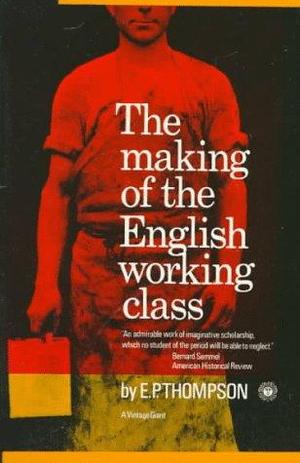On our lists
Summer reading: Ambitious length edition
A selection of books of abnormal length for beach readers who want a sense of accomplishment.
| IN STOCK | $27.00 |
|---|
Too many accounts of the birth of the working class rely on purely mechanistic accounts which erase the agency of the working class themselves—but while capitalism and industrialization obviously set the stage for the birth of the modern proletariat, that class, was as E.P. Thompson puts it in his magnum opus, "present at its own making." In Making, E.P. Thompson restores the lives and dreams of the English working class to the historical stage, tracing the pathways of self-organization and political mobilization that emerged alongside and in resistance to the birth of modern capitalism.
From EP Thompson's preface:
THIS BOOK HAS a clumsy title, but it is one which meets its purpose. Making, because it is a study in an active process, which owes as much to agency as to conditioning. The working class did not rise like the sun at an appointed time. It was present at its own making.
Class, rather than classes, for reasons which it is one purpose of this book to examine. There is, of course, a difference. “Working classes” is a descriptive term, which evades as much as it defines. It ties loosely together a bundle of discrete phenomena. There were tailors here and weavers there, and together they a make up the working classes.
By class I understand an historical phenomenon, unifying a number of disparate and seemingly unconnected events, both in the raw material of experience and in consciousness. I emphasize that it is an historical phenomenon. I do not see class as a “structure,” nor even as a “category,” but as something which in fact happens (and can be shown to have happened) in human relationships.
More than this, the notion of class entails the notion of historical relationship. Like any other relationship, it is a fluency which evades analysis if we attempt to stop it dead at any given moment and anatomize its structure. The finest-meshed sociological net cannot give us a pure specimen of class, any more than it can give us one of deference or of love. The relationship must always be embodied in real people and in a real context. Moreover, we cannot have two distinct classes, each with an independent being, and then bring them into relationship with each other. We cannot have love without lovers, nor deference without squires and laborers. And class happens when some men, as a result of common experiences (inherited or shared), feel and articulate the identity of their interests as between themselves, and as against other men whose interests are different from (and usually opposed to) theirs. The class experience is largely determined by the productive relations into which men are born—or enter involuntarily. Class-consciousness is the way in which these experiences are handled in cultural terms: embodied in traditions, value-systems, ideas, and institutional forms. If the experience appears as determined, class-consciousness does not. We can see a logic in the responses of similar occupational groups undergoing similar experiences, but we cannot predicate any law. Consciousness of class arises in the same way in different times and places, but never just the same way.
| ISBN | 9780394703220 |
|---|---|
| List price | $27.00 |
| Publisher | Vintage Books |
| Year of publication | 1966 |

A selection of books of abnormal length for beach readers who want a sense of accomplishment.